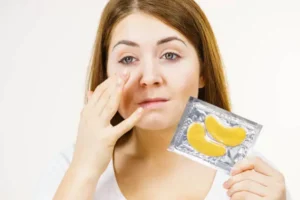Permanent skin whitening treatment UK
Skin whitening treatments have gained significant popularity worldwide, including in the UK, as people seek brighter, more even-toned skin. Whether you’re looking to lighten hyperpigmentation, reduce dark spots, or enhance your natural complexion, various skin whitening treatments are available to help you achieve your desired results.
While some individuals opt for temporary solutions like skincare products or makeup, others seek permanent treatments for long-lasting change. In this detailed blog post, we will explore everything you need to know about permanent skin whitening treatments in the UK,
Understanding Skin Whitening
Before diving into specific treatments, it’s important to understand what skin whitening means and what it entails. Skin whitening refers to the process of lightening or brightening the skin tone, often intending to reduce dark spots, hyperpigmentation, or uneven skin tones. This process is different from simply “brightening” the skin; skin whitening typically refers to a more noticeable and long-term reduction in pigmentation.
People often seek skin whitening for the following reasons:
- Hyperpigmentation: Dark spots or patches caused by acne scars, sun exposure, aging, or hormonal changes.
- Melasma: A condition that causes brown or gray-brown patches on the face, typically due to hormonal changes or sun exposure.
- Freckles: Small brown spots that can develop from sun exposure.
- Uneven Skin Tone: Areas of the skin may be darker than others due to various factors like sun exposure, acne, or scarring.
Skin whitening doesn’t mean achieving a completely pale complexion; rather, it’s about creating a more even skin tone and reducing areas of excess pigmentation. However, it’s essential to approach skin whitening with caution and select safe treatments that won’t harm your skin.
What Are the Different Types of Skin Whitening Treatments?
Several skin whitening treatments are available in the UK, ranging from at-home skincare products to advanced dermatological procedures. Here’s a breakdown of the most common options:
Topical Skin Whitening Products
These products are some of the most accessible and cost-effective ways to whiten skin. They typically contain ingredients known to reduce melanin production and lighten dark spots or hyperpigmentation. While these products can deliver gradual and long-lasting results, they require consistent use over time.
Common Ingredients in Skin Whitening Products:
- Hydroquinone: A potent ingredient that inhibits the production of melanin. It’s effective for fading dark spots, freckles, and hyperpigmentation.
- Vitamin C: Known for its skin-brightening properties, vitamin C helps reduce melanin production and promote collagen synthesis.
- Niacinamide: This form of vitamin B3 helps lighten skin and reduce discoloration, improving the skin’s overall tone.
- Arbutin: A plant-derived compound that works similarly to hydroquinone, inhibiting melanin production and lightening the skin.
- Retinoids: Retinoids, such as tretinoin, promote skin cell turnover, helping fade dark spots and improve overall skin texture.
- Kojic Acid: A natural ingredient that helps lighten skin and reduce dark spots by inhibiting melanin production.
These products are often available in the form of creams, serums, or gels. While effective, they usually require several weeks or months of consistent use to see visible results. It’s essential to be cautious with their use, as some ingredients like hydroquinone can cause skin irritation or sensitivity if used excessively. Permanent skin whitening treatment UK
Chemical Peels
Chemical peels involve the application of a chemical solution to the skin, which exfoliates the top layers of dead skin cells and stimulates the production of new, healthy skin. This procedure can improve skin tone, reduce pigmentation, and even out complexion.
Types of Chemical Peels:
- Superficial Peels: These are mild peels that only remove the outermost layer of skin. They are effective for lightening surface-level pigmentation, such as freckles and sunspots.
- Medium Peels: These peels penetrate deeper into the skin, targeting melasma, acne scars, and more severe hyperpigmentation.
- Deep Peels: Used for more serious cases of pigmentation or scars, deep peels remove several layers of skin and promote significant skin regeneration.
Chemical peels are usually performed by dermatologists or licensed professionals. They may require some downtime as the skin heals, with redness, peeling, and flaking occurring in the days following the procedure.
Laser Skin Whitening Treatments

Laser treatments are some of the most advanced options for permanent skin whitening. These treatments use focused light to target pigmentation in the skin, breaking it up and allowing the body to naturally eliminate it over time. Permanent skin whitening treatment UK
Common Laser Treatments:
- Q-Switch Laser: A popular laser for treating pigmentation issues like dark spots, freckles, and melasma. It uses short pulses of light to break down melanin in the skin.
- Fractional CO2 Laser: This laser targets the deeper layers of the skin to treat issues like acne scars, uneven skin texture, and hyperpigmentation.
- Intense Pulsed Light (IPL): IPL uses broad-spectrum light to treat pigmentation, redness, and sun damage. It’s less invasive than other laser options and is effective for treating surface-level pigmentation.
Laser treatments typically require a series of sessions to achieve the desired results, and they often provide more immediate results compared to topical products.
Microneedling
Microneedling involves using tiny needles to create controlled micro-injuries in the skin. This stimulates collagen production and promotes the turnover of skin cells, which can help improve the appearance of hyperpigmentation and dark spots.
Microneedling can be an effective treatment for improving skin texture, brightening the complexion, and reducing pigmentation over time. It’s often combined with serums or PRP (Platelet-Rich Plasma) for enhanced results.
Skin Whitening Injections
Skin whitening injections have become increasingly popular in certain parts of the world. These injections usually contain glutathione, a powerful antioxidant that can lighten skin tone by reducing melanin production.
While some people may see results from these injections, their safety and effectiveness are debated. The UK’s National Health Service (NHS) has raised concerns about the long-term use of skin whitening injections due to potential side effects, such as liver damage, skin thinning, and other health risks. It’s essential to consult a healthcare professional before considering this option.
Which Treatment is Right for You?
Choosing the best skin whitening treatment depends on your individual skin concerns, the severity of pigmentation, your skin type, and how much time you’re willing to invest in treatment. For minor pigmentation issues, topical treatments and gentle chemical peels might suffice. For more significant skin concerns like melasma or deep scars, more advanced options like laser treatments or microneedling may be required.
Things to Consider Before Choosing Permanent Skin Whitening Treatment
Before opting for any permanent skin whitening treatment, there are several factors to consider:
- Consult a Dermatologist: It’s always advisable to consult a dermatologist before undergoing any skin whitening treatments. A dermatologist can assess your skin type and recommend the most appropriate treatment based on your individual needs.
- Be Realistic About Expectations: While permanent treatments can produce dramatic results, it’s important to have realistic expectations. Results can vary depending on the treatment method and the severity of pigmentation.
- Side Effects and Risks: All treatments carry some degree of risk, whether it’s irritation from topical products or potential side effects from lasers. Be sure to ask your provider about possible side effects and take all necessary precautions.
- Aftercare is Key: Proper aftercare is essential for ensuring the success of your skin whitening treatment. This may include avoiding sun exposure, using sunscreen, and following any other instructions provided by your practitioner. Permanent skin whitening treatment UK
Permanent skin whitening treatments in the UK can provide a solution for individuals looking to lighten hyperpigmentation, dark spots, and uneven skin tones. From topical products to advanced treatments like laser therapy, there are a variety of options available, each with its own set of benefits and risks. Always consult with a qualified dermatologist or professional to ensure you choose the right treatment for your skin type and needs.
Remember that achieving and maintaining even-toned, glowing skin requires consistent care and protection from the sun, so be sure to follow aftercare instructions and protect your skin from future damage.
Can skin whitening treatments cause skin damage?

Yes, skin whitening treatments can cause skin damage if not used properly, or if the wrong treatment is chosen for your skin type. It’s important to approach skin whitening with caution and seek professional advice before undergoing any treatment. Below are some potential risks and side effects of common skin whitening treatments that can lead to skin damage:
Topical Skin Whitening Products
Topical products like creams, serums, and lotions containing ingredients such as hydroquinone, retinoids, hydrocortisone, and chemical lighteners can cause skin damage if used incorrectly or in excessive amounts. Some risks include:
Skin Irritation and Sensitivity: Overuse of strong ingredients like hydroquinone or retinoids can cause redness, dryness, peeling, and irritation. These ingredients work by speeding up skin turnover, and if used too frequently or in high concentrations, they can damage the skin barrier, leaving it vulnerable to environmental factors. Permanent skin whitening treatment UK
Thinning of the Skin: Long-term use of certain products (especially those containing steroids like hydrocortisone or powerful retinoids) can cause the skin to become thinner, which can make it more prone to bruising, tearing, and developing fine lines.
Increased Sensitivity to Sun Exposure: Many skin whitening products, particularly those with active ingredients like hydroquinone or retinoids, make your skin more sensitive to sunlight. If you don’t apply sunscreen regularly, this increased sensitivity can lead to sunburn, hyperpigmentation, and long-term skin damage.
Chemical Peels
Chemical peels involve applying a chemical solution to the skin, which causes it to exfoliate and peel off, revealing fresh, new skin underneath. While chemical peels can be effective for skin whitening, they also carry certain risks:
Burns and Scarring: If the chemical solution is too strong or left on for too long, it can cause chemical burns, resulting in skin damage, scarring, and long-term pigmentation issues. This is particularly a risk with deep or medium-depth peels.
Uneven Results: If a chemical peel is not applied evenly or correctly, it can result in patchy skin tones and uneven healing, leading to hyperpigmentation in some areas and hypopigmentation (lightening of the skin) in others.
Infection Risk: After a chemical peel, the skin is temporarily more vulnerable to infection. If you do not follow proper aftercare, or if you touch your face with unclean hands, you could risk developing bacterial or fungal infections.
Laser Skin Whitening Treatments
Laser treatments, such as Q-switched lasers, CO2 lasers, and IPL (Intense Pulsed Light), work by targeting the melanin in the skin to break it up and lighten pigmentation. Although lasers can be effective for skin whitening, they come with the following potential risks:
Burns and Blisters: If laser treatment is not performed properly or if the wrong settings are used for your skin type, it can cause burns or blisters, leading to scarring or permanent skin damage.
Hyperpigmentation and Hypopigmentation: Although lasers can lighten dark spots, they can sometimes cause post-inflammatory hyperpigmentation (PIH), which makes dark spots even darker. On the flip side, there’s also a risk of hypopigmentation (white spots), where the treated skin becomes lighter than the surrounding skin.
Skin Aging: Repeated laser treatments can sometimes accelerate skin aging by causing the skin to thin over time, which can lead to a more fragile appearance with fine lines and wrinkles.
Microneedling
Microneedling involves tiny needles that create micro-injuries in the skin to stimulate collagen production. While it’s a minimally invasive treatment, there are risks if it’s not done correctly or if aftercare isn’t followed:
Skin Infection: Since microneedling creates small punctures in the skin, there is a risk of infection if the skin is not properly sanitized before or after the procedure. This can lead to acne breakouts, redness, swelling, or worse, deeper infections.
Scarring: If the needles are not sterilized, or if they penetrate the skin too deeply, there’s a risk of scarring. Microneedling can also worsen scarring if done on already damaged skin or on areas with active acne. Permanent skin whitening treatment UK
Post-inflammatory Hyperpigmentation: Microneedling can sometimes worsen pigmentation issues, especially for people with darker skin tones. This may occur if the skin doesn’t heal properly after the procedure.
Skin Whitening Injections (Glutathione)
Skin whitening injections containing glutathione, an antioxidant, are becoming more popular, but they are controversial and can have side effects:
Liver Damage: Prolonged use of glutathione injections can potentially lead to liver damage or other organ issues, especially if not administered properly or if the injections contain unsafe additives.
Skin Reactions: Some individuals may experience allergic reactions, including redness, swelling, and itching, at the injection sites. These reactions can cause long-term skin damage if not properly managed.
Inconsistent Results: The results of glutathione injections are not always permanent, and the skin may return to its original tone if maintenance treatments are not followed. This can lead to uneven skin tones, which can be frustrating.
Overuse of Skin Whitening Treatments

Excessive use of any skin whitening treatment, whether topical, chemical, or laser-based, can lead to long-term skin damage. The skin may become overly sensitive, prone to irritation, and lose its natural moisture balance. Overuse can also make the skin more susceptible to external aggressors like pollutants, UV rays, and harsh weather conditions.
Preventing Skin Damage from Whitening Treatments
To minimize the risk of skin damage, here are some tips:
Consult a Professional: Always seek the advice of a licensed dermatologist or certified skincare professional before undergoing any whitening treatment. They can recommend the best treatment based on your skin type and condition.
Patch Test Products: Before applying any skin whitening products, especially those with potent ingredients like hydroquinone or retinoids, perform a patch test on a small area of skin to check for irritation.
Follow Aftercare Instructions: After undergoing any skin whitening treatment, follow all aftercare instructions carefully. This typically includes using sunscreen, moisturizing the skin, and avoiding direct sun exposure for some time.
Use Sunscreen: Sunscreen is critical when using skin whitening treatments, as many of them can make your skin more sensitive to the sun. Use broad-spectrum SPF 30 or higher every day to protect your skin from UV damage.
Avoid Overuse: Whether you’re using topical products or undergoing laser treatments, avoid overusing whitening treatments. Allow your skin time to heal and regenerate before starting a new round of treatment.
Conclusion
Skin whitening treatments can provide great results, but they also come with potential risks, especially when not used properly. The most common skin damage risks include irritation, burns, scarring, pigmentation changes, and skin thinning. It’s essential to consult with a qualified professional to ensure the treatment you choose is safe and suitable for your skin type. Additionally, remember to follow proper aftercare to minimize any negative effects and protect your skin from further damage.
FAQs
Are skin whitening treatments safe?
Skin whitening treatments can be safe when performed by trained professionals. However, some treatments, such as skin whitening injections, may carry risks and side effects. Always consult with a dermatologist or licensed practitioner to ensure safety.
How long does it take to see results from skin whitening treatments?
The time it takes to see results depends on the treatment. Topical products may take weeks to months to show visible results, while treatments like laser skin whitening or chemical peels can provide faster results, often within a few sessions.
Can skin whitening treatments cause skin damage?
If not performed correctly or if the wrong products are used, skin whitening treatments can cause skin irritation, burns, or even permanent damage. It’s essential to follow professional guidance and choose reputable clinics and skincare products.
How long do the results of permanent skin whitening treatments last?
The results of permanent skin whitening treatments can last for a long time, but maintenance may be necessary. Factors such as sun exposure, hormonal changes, and lifestyle habits can influence the longevity of the results.
Are there any natural alternatives to permanent skin whitening treatments?
Natural remedies like aloe vera, vitamin C serums, and turmeric are often promoted as skin lighteners. While they may have mild effects, they generally won’t provide the same dramatic results as professional treatments. However, they can be useful for maintaining a healthy complexion and preventing future pigmentation.
